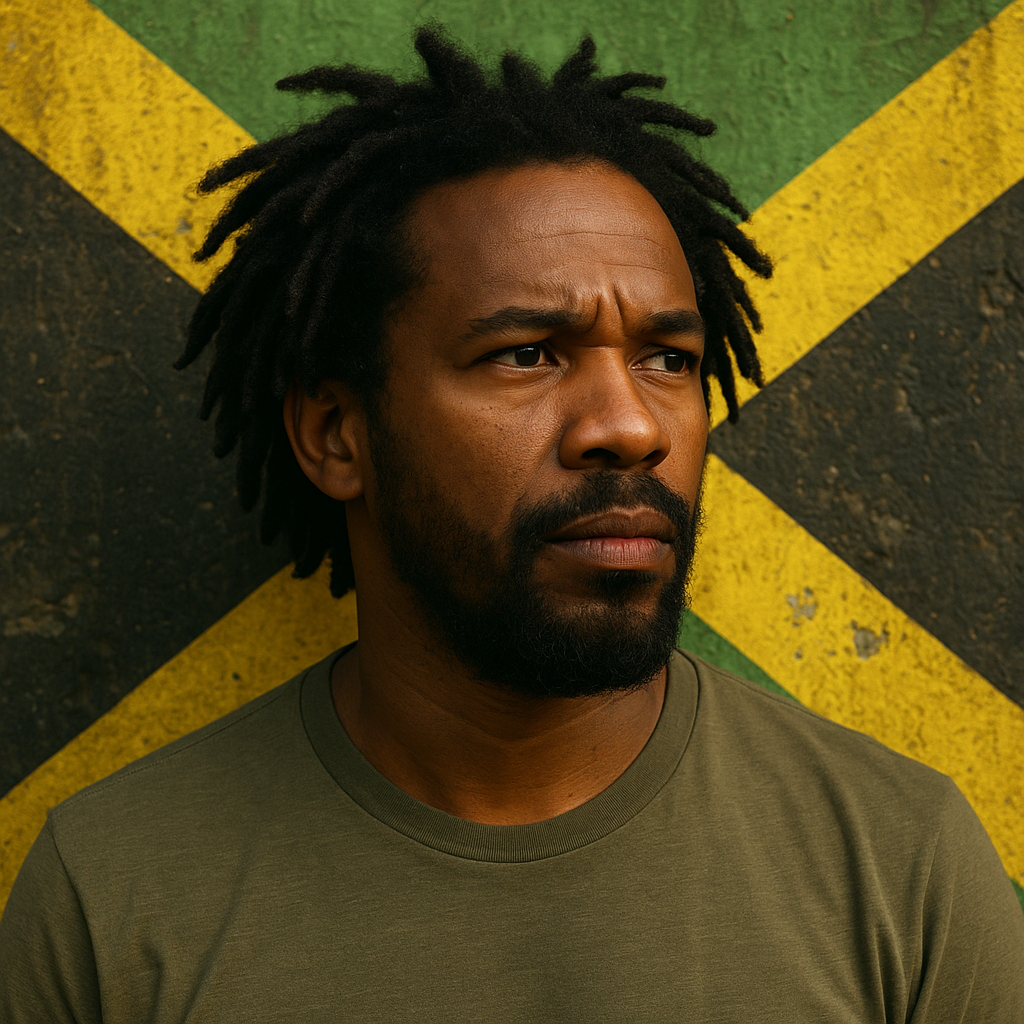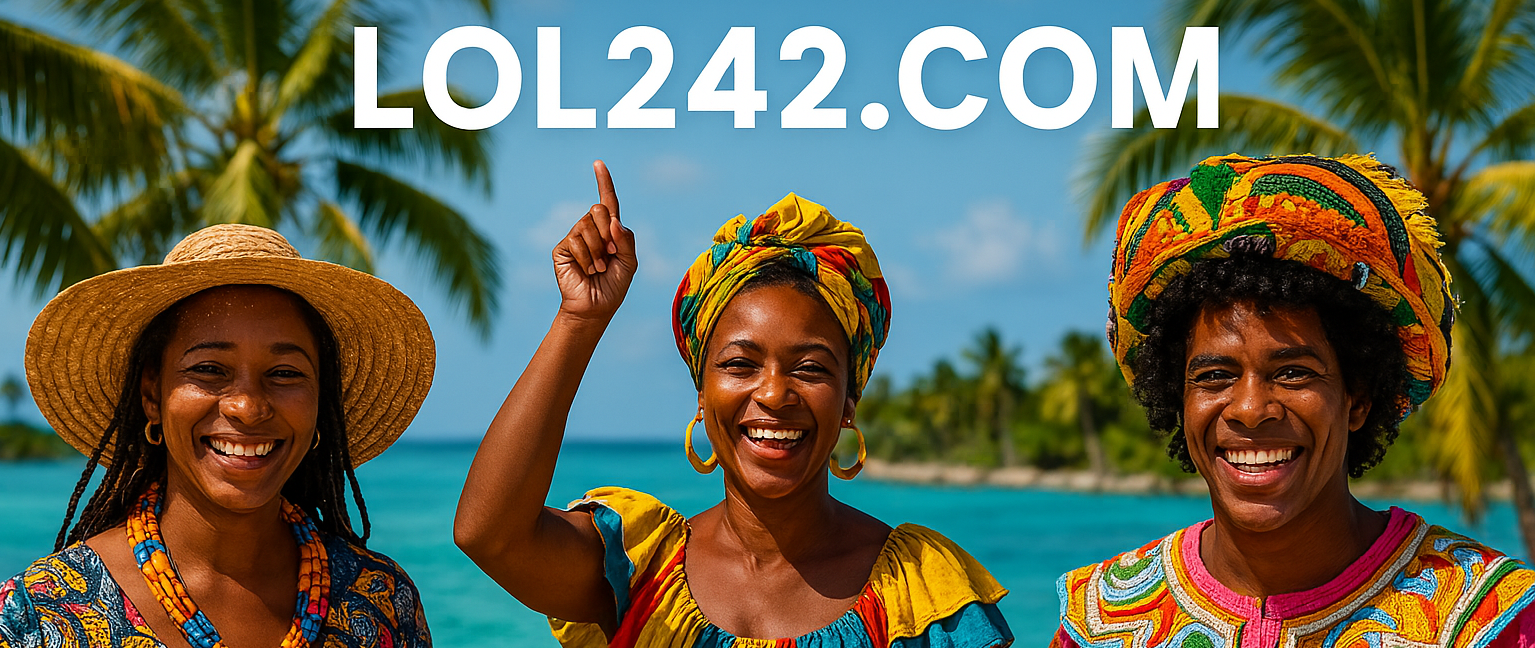

The Power, Pain, and Pride of a People Who Never Back Down
They tried to chain them. They tried to break them.
But the more pressure they applied, the harder they came back.
This is the real story of Jamaica, not just the island of reggae and beaches, but the island of warriors, revolutionaries, artists, and leaders. This is a story of resistance written in blood and rhythm, fire and freedom.
To every Jamaican who’s ever been called loud, aggressive, or trouble, this article is for you.
And to everyone who’s ever underestimated Jamaicans, sit back and learn something.
 From Africa to the Rock: Where the Jamaican People Come From
From Africa to the Rock: Where the Jamaican People Come FromBefore there was “Jamaica,” there were free African people, warriors, builders, spiritual leaders, taken from their homes and forced across the Atlantic to work on sugar plantations under brutal slavery.
The majority of Jamaicans today are descendants of these African nations:
Akan (Ghana) – Including the Ashanti and Fante. Masters of warfare, gold trading, and clan-based governance. Their legacy of resistance lives strong in Jamaica’s rebellious heart.
Igbo (Nigeria) – Known for deep spirituality and mental toughness. Many Igbo enslaved in Jamaica were known for resisting captivity, often choosing death over bondage.
Yoruba (Nigeria) – Rich in culture, religion (Orisha, which influenced Jamaican Revivalist traditions), and oral tradition.
Kongo and Angola people – Brought deep spiritual knowledge and guerrilla survival skills, which became the roots of Jamaican Maroon culture.
These weren’t “primitive tribes.” These were kingdoms. These were empires. And their children would soon turn the island of sugar into a land of fire.
 The Maroons: The First to Say “Not Here”
The Maroons: The First to Say “Not Here”The British thought they could control Jamaica with whips, muskets, and fear.
They didn’t count on the Maroons.
Maroons were runaway slaves who disappeared into the mountains and formed their own hidden communities. But they didn’t just survive, they fought back. With tactics that rivaled any military force on Earth, they turned Jamaica’s forests into a killing ground for colonial armies.
Led by legendary warriors like Queen Nanny of the Maroons, a national hero and a woman with spiritual gifts and military genius, the Maroons beat the British so badly that the British had to sign a treaty just to get them to stop.
Let that settle in:
A group of enslaved Africans forced the British Empire to back off.
They didn’t just want freedom for themselves, they rescued other enslaved Africans, ran underground resistance networks, and kept the fire of rebellion alive for generations.
To this day, Maroon towns in Jamaica still exist. Still sovereign. Still proud. Still free.
 The Richness They Don’t Want to Talk About
The Richness They Don’t Want to Talk AboutJamaica was once called “the jewel of the British crown”, not because it was pretty, but because it made the British filthy rich.
Sugar, rum, coffee, bananas, and other exports made fortunes for plantation owners and royal elites, all off the backs of enslaved Africans.
But here’s what they don’t like to mention:
Jamaica is rich in bauxite, one of the world’s most important minerals for aluminum.
Its soil is fertile and volcanic, perfect for agriculture, ganja (cannabis), and tropical exports.
Its coastline and tourism potential bring in billions, much of which is extracted by foreign corporations and not returned to the Jamaican people.
So why is Jamaica facing poverty and underdevelopment?
Because colonialism never really left.
Only the accents changed.
 Culture That Echoes Across the World
Culture That Echoes Across the WorldYou cannot talk about global culture without mentioning Jamaica.
Reggae isn’t just music, it’s a movement. Born from pain, rebellion, and Rastafari faith. Bob Marley didn’t just sing songs. He spread a message of spiritual resistance.
Dancehall is raw, real, and untamed. A mirror held to the society that birthed it.
Patois (Patwa) — Jamaica’s language, is poetry in rebellion. A mashup of English, African rhythm, and island soul.
Rastafari — a religion, a lifestyle, and a philosophy that challenges Western materialism and reconnects with African identity.
Cuisine — Jerk chicken, ackee and saltfish, festival, bammy, pepper shrimp. Every bite tells a story of flavor, struggle, and pride.
Even the way Jamaicans talk, walk, and hold themselves says:
“I know who I am. You can’t bend me.”
 Minds as Sharp as Their Tongue
Minds as Sharp as Their TongueJamaicans aren’t just musical and athletic. They’re brilliant.
Jamaica has produced world-class poets, professors, politicians, and lawyers.
It has one of the highest numbers of universities per capita in the Caribbean.
Usain Bolt, the fastest man on Earth, didn’t just break records, he embodied the island’s spirit: fierce, joyful, and unbothered.
Wherever Jamaicans go, New York, Toronto, London, they bring culture, hustle, and truth. You’ll find Jamaicans in the kitchen, the courtroom, the boardroom, the stage, and the street. And if you don’t see them, it’s because they’re already running things behind the curtain.
 Resistance Isn’t Just History, It’s a Lifestyle
Resistance Isn’t Just History, It’s a LifestyleEvery time Jamaica has been pushed, it has pushed back.
Against colonialism
Against IMF debt
Against political corruption
Against violence and propaganda
Against the lie that they should be silent, small, or ashamed
Jamaicans don’t ask permission. They speak truth, even if it shakes rooms. They love hard. They fight harder. And they laugh louder than their pain.
 What Jamaica Needs Now: Leadership Without Chains
What Jamaica Needs Now: Leadership Without ChainsJamaica, like Haiti, has suffered from the curse of bad leadership leaders who serve foreign interests over local needs.
But imagine this:
A Jamaican leader with the mindset of Burkina Faso’s President Ibrahim Traoré, young, fearless, proud, unbought.
Someone who says,
“Jamaica is not a playground. It’s a kingdom.”
“We are not poor. We are pillaged.”
“We owe no one, and we’re taking back everything.”
That’s the energy Jamaica needs again.
Not another puppet.
Not another polished politician.
Jamaica needs a modern Nanny, a modern Garvey, a leader who will ignite the fire again.
 Jamaica and Haiti: Twins in Struggle
Jamaica and Haiti: Twins in StruggleThough separated by sea, Jamaica and Haiti share the same blood.
Both fought back against slavery.
Both terrified colonial powers.
Both were punished for their boldness.
Both have been divided by Western lies, told to mistrust each other, compete, and forget their shared roots.
But the truth is: when Jamaicans and Haitians unite, the whole world shifts.
From Maroons to revolutionaries.
From reggae to Vodou drums.
The islands don’t whisper. They roar.
 A Final Word to Every Jamaican
A Final Word to Every JamaicanTo every Jamaican youth told they’re too loud,
To every mother grinding to feed her children,
To every elder with stories etched in Kreyòl and Patwa,
To every dreamer building something from nothing…
You are not just a citizen of an island.
You are the child of warriors.
You are the fire they couldn’t put out.
They call you “those damn Jamaicans”?
Good. Be louder. Be prouder. Be unbreakable.
Because you’re not just descendants of struggle.
You’re the future of Black dignity, sound, and sovereignty.
Jamaica isn’t small. Jamaica is the spark.
And sparks light empires on fire.
One Love!
